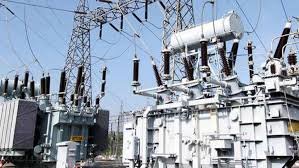Nigeria’s persistent power crisis deepened once more on September 10, 2025, when the national electricity grid collapsed, throwing much of the country into blackout. The collapse, which occurred around mid-morning, caused generation to plummet from nearly 2,917 megawatts (MW) to an alarming 1.5 MW within the space of an hour, according to official records.
What Happened
The incident was triggered by the tripping of a power generation company (GenCo), which caused a sudden imbalance in load distribution across the grid. The fault cascaded quickly, forcing other power stations offline and leading to a near-total collapse of electricity supply.
Distribution Companies (DisCos) across the nation—including Abuja, Lagos, Kano, Enugu, and Port Harcourt—reported that supply had dropped to zero. At the height of the crisis, at least 30 states were affected.
The Independent System Operator (NISO) confirmed the collapse and said investigations into both the immediate and remote causes were underway.
Restoration Efforts
Restoration began at around 11:45 AM with the Shiroro hydropower plant leading the effort. By afternoon, Abuja and some parts of the South West had been reconnected, while other regions, particularly in the North and South East, continued to wait for supply to return.
DisCos including Abuja, Benin, Eko, Enugu, Ibadan, Ikeja, Kano, and Kaduna later announced partial restoration of electricity to their customers. However, power generation remained far below national demand as of Wednesday evening.
Economic and Social Fallout
The collapse immediately disrupted businesses across the country. Small and medium-sized enterprises (SMEs), already battered by high fuel prices, were forced once again to rely on costly generators to stay operational. Households experienced sudden blackouts in the middle of work and school hours, sparking widespread frustration.
“The national grid has become a ticking time bomb,” said energy analyst Adeolu Akinbami. “Every collapse comes with massive economic costs—lost productivity, higher generator expenses, and public distrust in the power sector.”
A Chronic Problem
This latest incident underscores Nigeria’s long-standing electricity woes. According to the Nigerian Electricity Regulatory Commission (NERC), the grid has collapsed multiple times in 2024 and 2025, despite promises of reform.
Experts point to several systemic problems:
- Aging infrastructure: Transmission lines and substations, some over 40 years old, are prone to failure.
- Gas supply shortages: Thermal plants, which account for much of Nigeria’s generation, often shut down due to inadequate fuel.
- Poor redundancy: A fault in one part of the grid can cascade because alternative pathways are lacking.
- Financial instability: Several DisCos and GenCos are in distress, with some placed under receivership by the courts earlier this year.
Calls for Reform
Labour unions and energy experts are calling for urgent reforms, including:
- A full technical audit of transmission infrastructure.
- Greater investment in alternative and renewable energy sources to reduce reliance on the central grid.
- Decentralisation of power supply, allowing states and regions to build their own mini-grids.
“The era of a single, fragile national grid should be coming to an end,” said Chika Okafor, an energy policy researcher. “Nigeria must embrace distributed power generation if it is to guarantee reliable electricity.”
Looking Ahead
While restoration is ongoing, Nigerians remain skeptical. Each collapse highlights not only technical weaknesses but also governance challenges in the power sector. Without significant investment, policy reform, and stronger oversight, experts warn that grid collapses will continue to be a recurring nightmare.
For now, millions of Nigerians are bracing themselves for more blackouts, more generator fumes, and more uncertainty—symbols of a power sector that has yet to deliver on its promises.
If you enjoyed this article, explore more insightful stories on iNaijanow and join the conversation on our Instagram, Facebook, X, YouTube for fun, engaging, and up-to-date content.
- Paystack Becomes a Bank as It Acquires Ladder Microfinance Bank

- Fuji Vibrations 2025 by FUJI: A Opera Sets a New Benchmark for Celebrating Fuji Heritage and Community

- Wizkid Breaks 2025 Billboard Afrobeats Record with 21 Entries

Disclaimer: The opinions, views, and information expressed in this article are those of the author and do not necessarily reflect the official policy, position, or views of iNaijanow. The company assumes no liability for any errors, omissions, or damages arising from the use of this information.














Haha, another grid collapse! Ticking time bomb, indeed! 😂 Guess the power ministers Japa Syndrome cure is still in the works? At this rate, Nigeria needs its own backup generator for the national grid – maybe a mini-grid powered by hopeful whispers! 🤷♂️ The era of a single, fragile national grid sure is eventful. Cant wait for the day states run their *own* grids, possibly leading to State A has power, State B is voting, State C is praying scenarios. For now, lets all invest in good flashlights and generator maintenance tips, shall we? 💡🔥 #NaijaPower #StayTunedAndPreparedvows bridal
This article effectively highlights the devastating impact of Nigerias chronic power grid failures. The vivid descriptions of the blackouts effects on daily life and economy make it relatable and urgent.